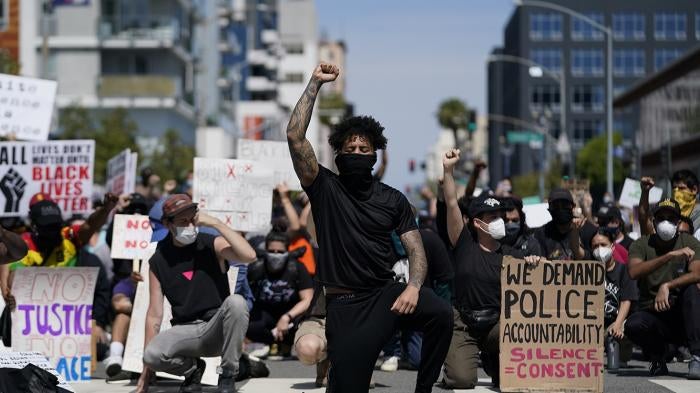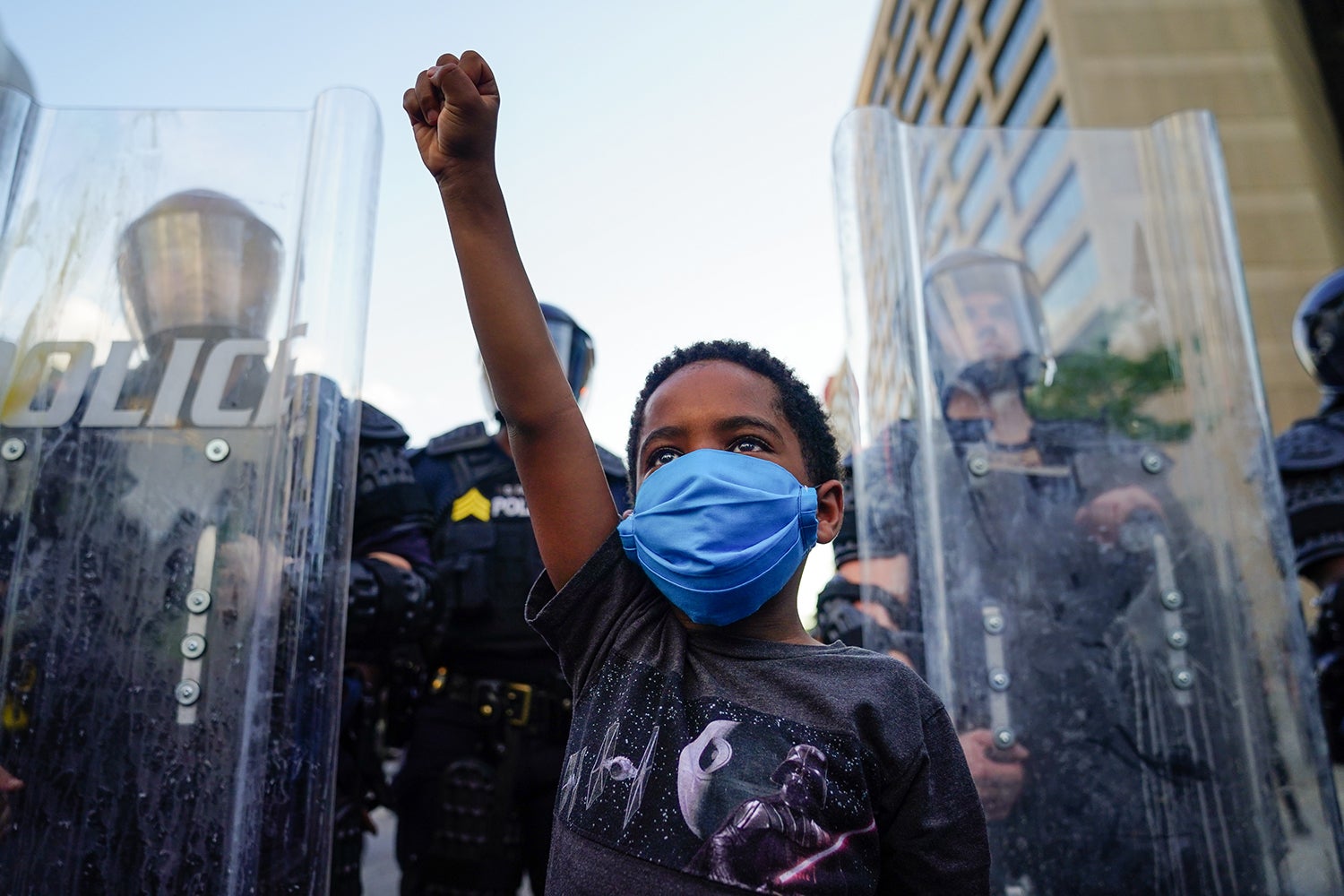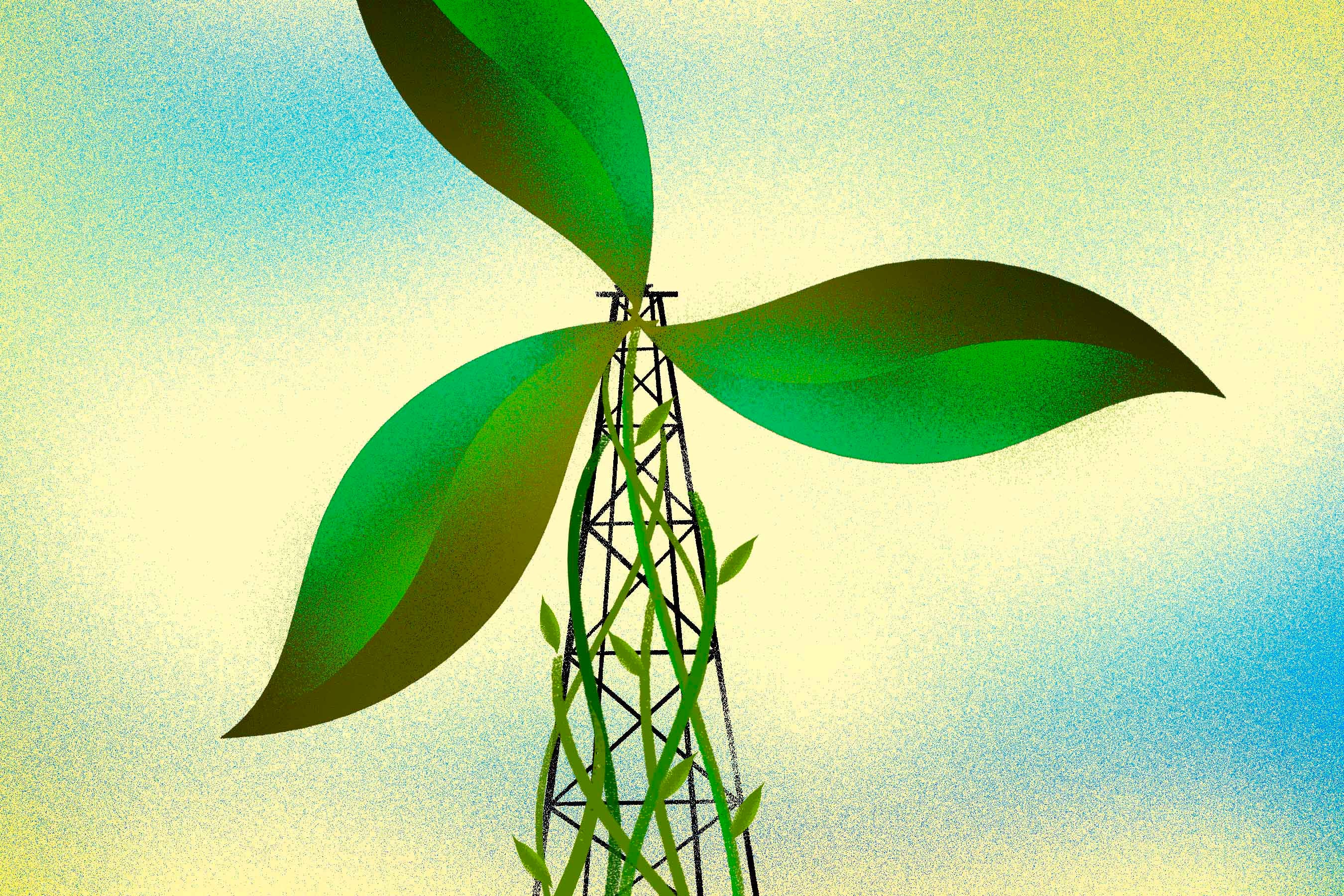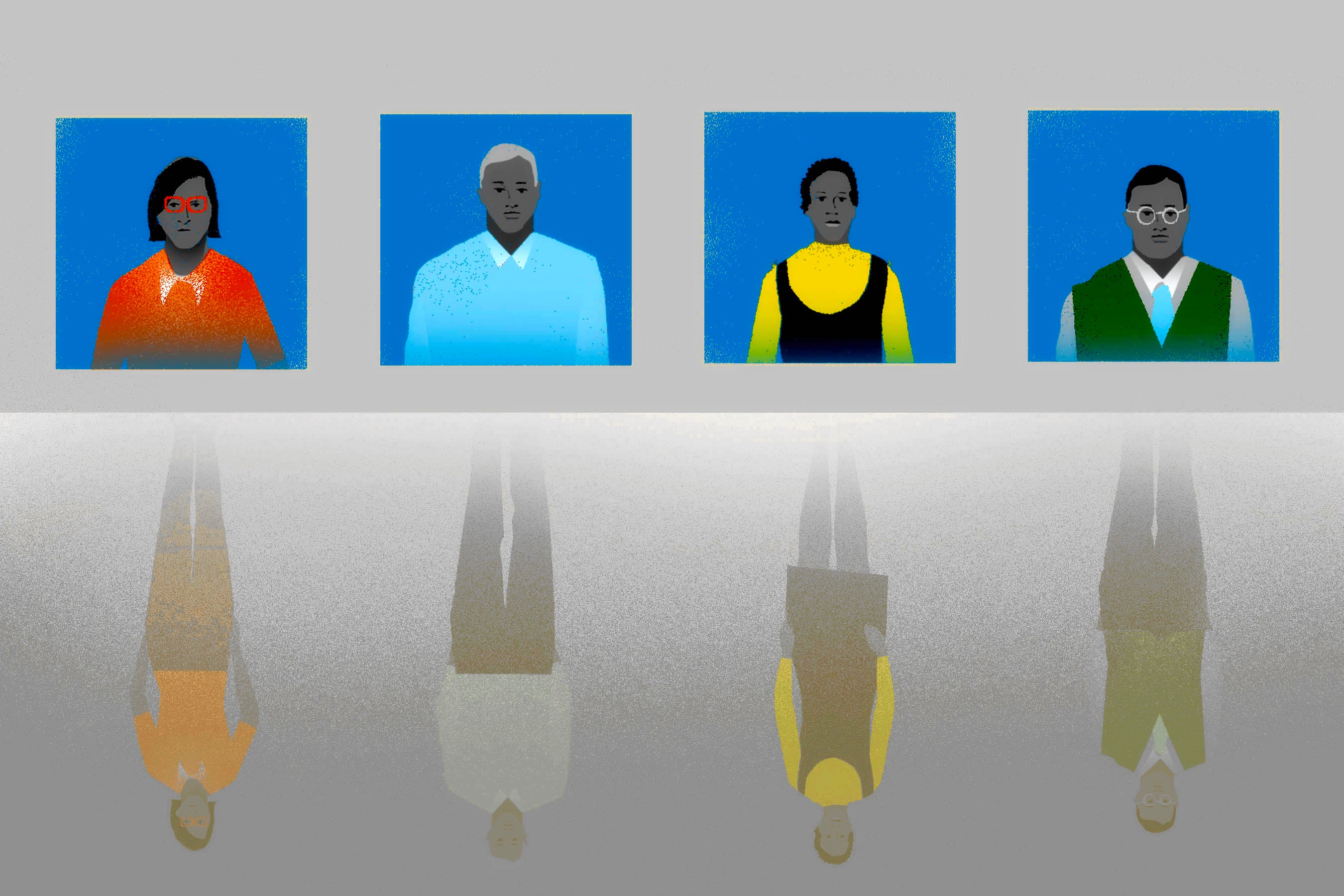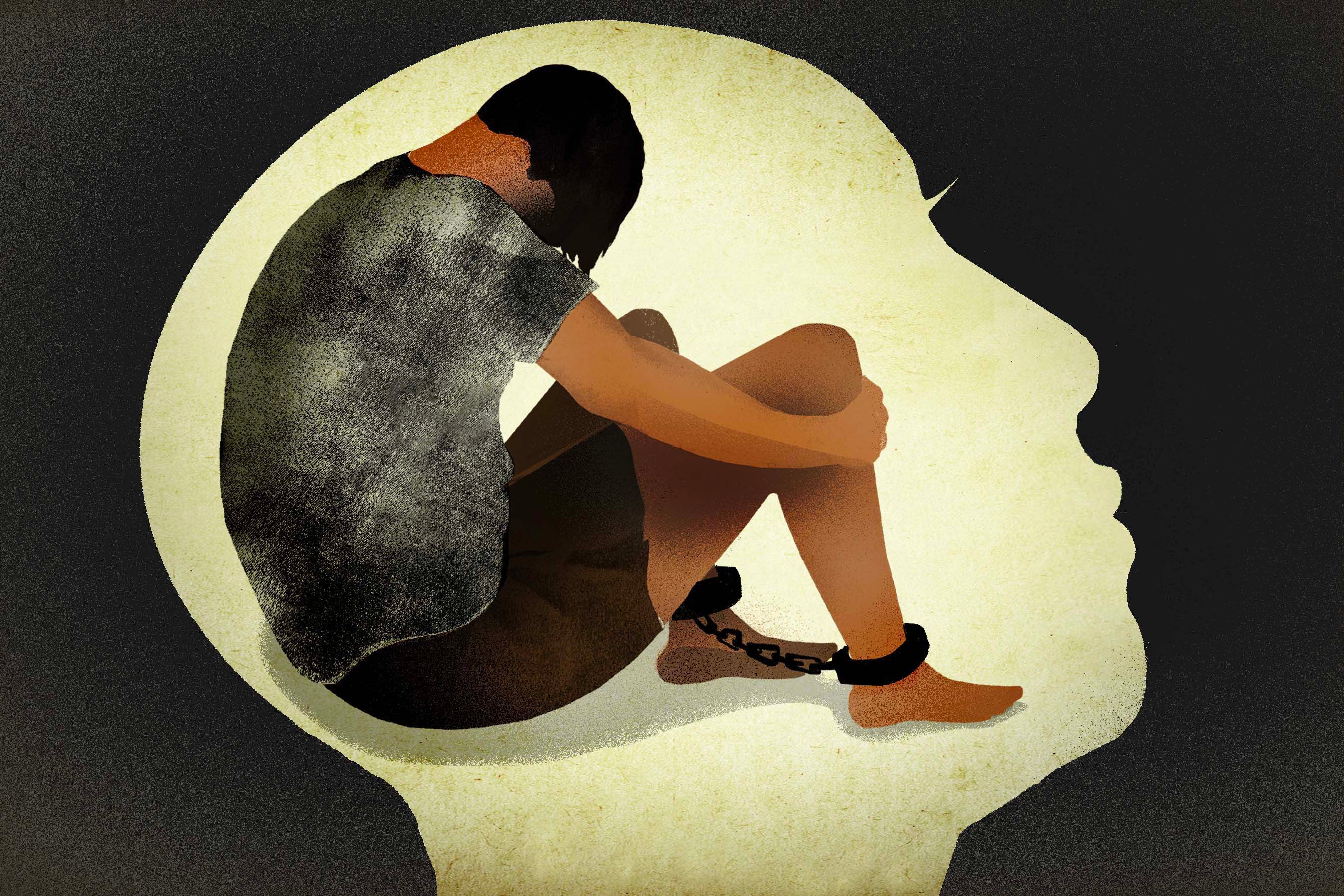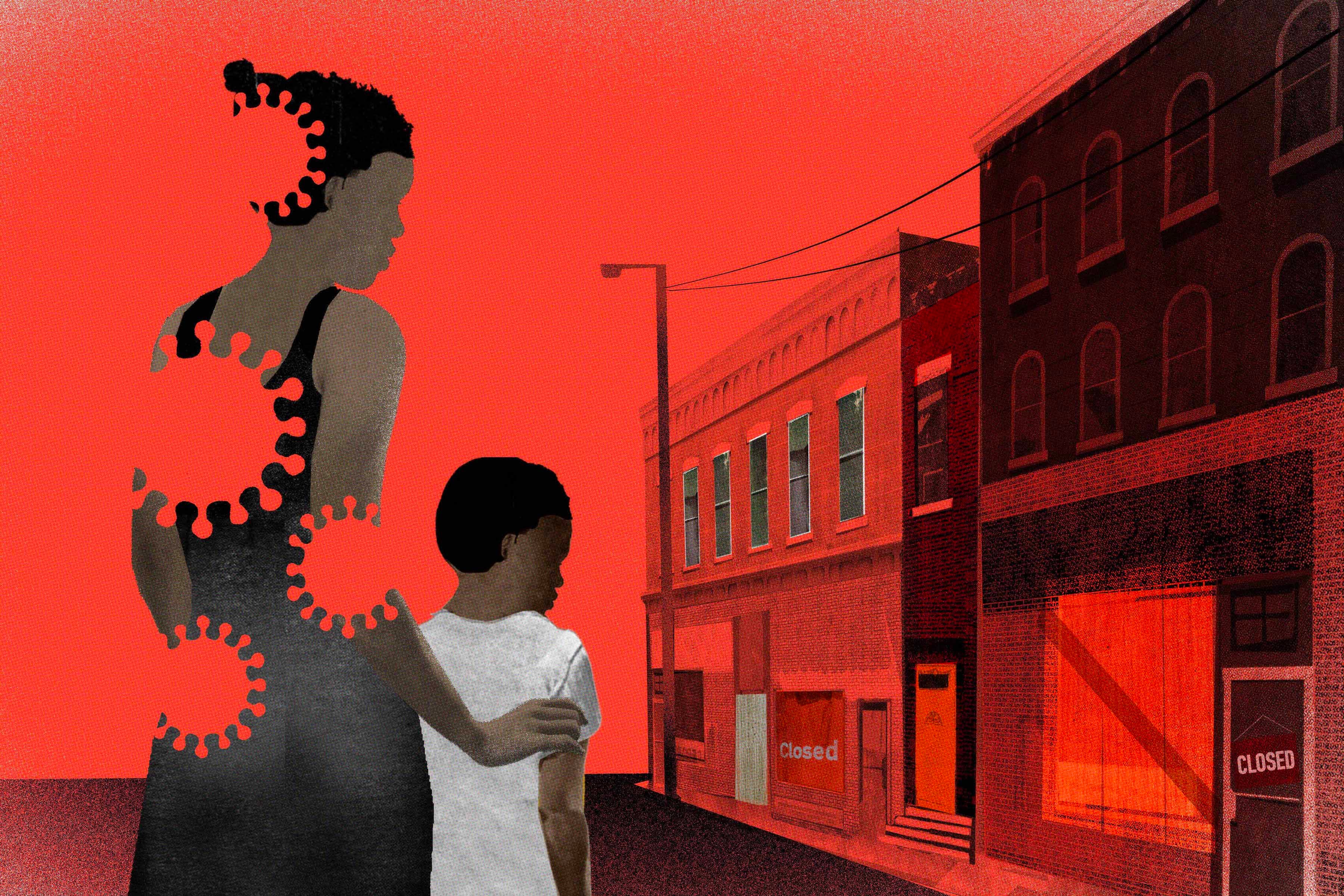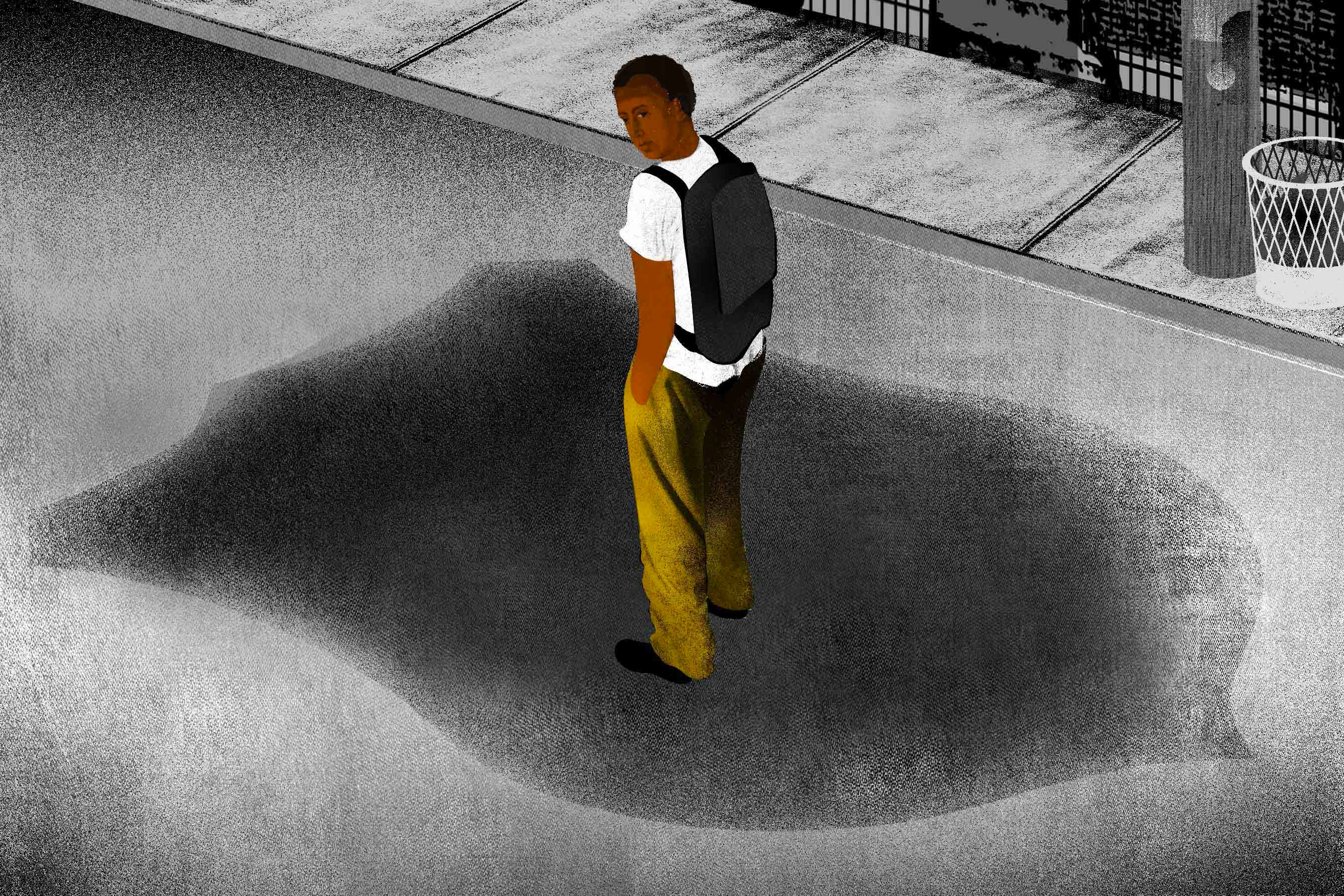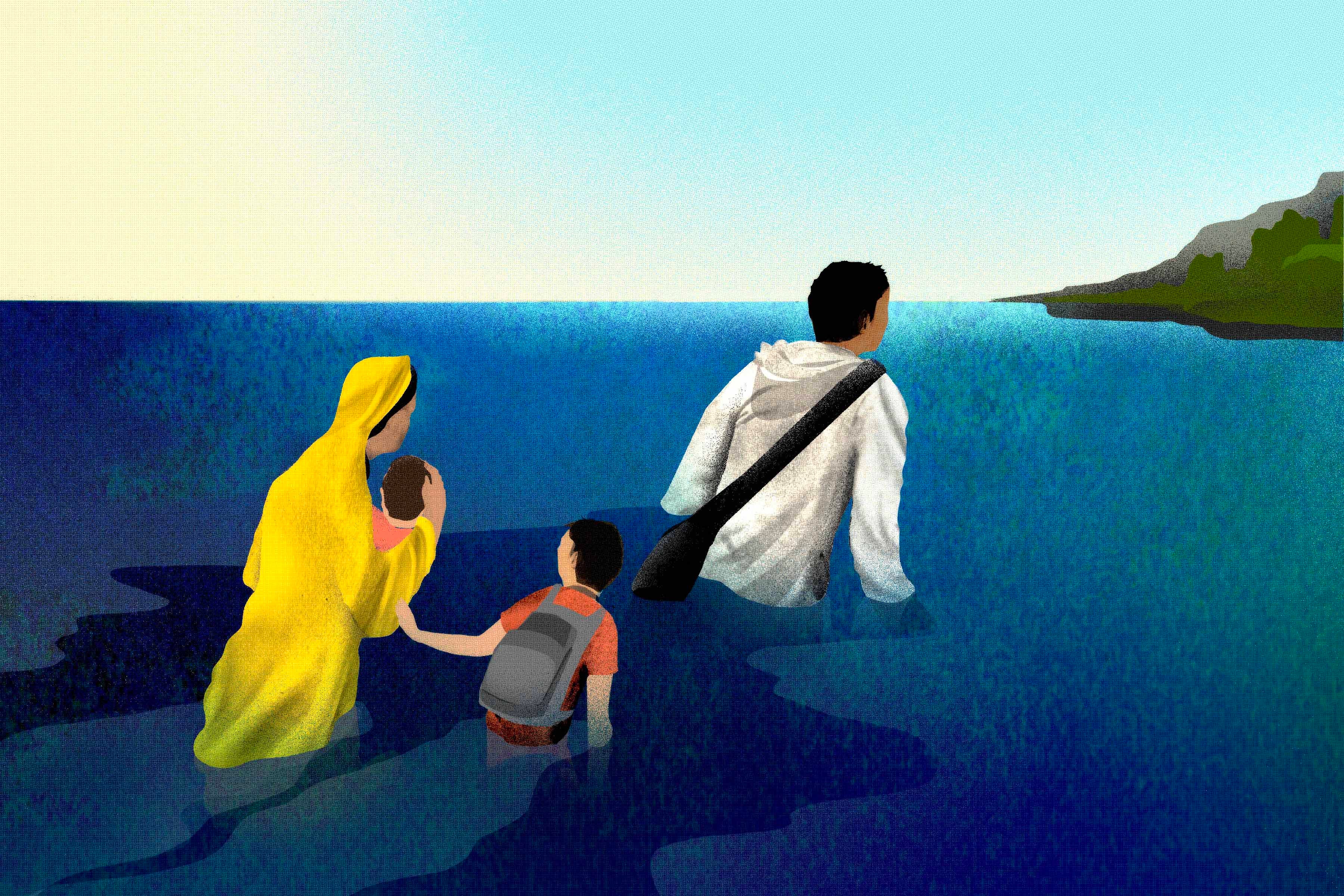Important human rights failings of the United States were laid bare in 2020.
The grossly disproportionate impact of Covid-19 on Black, brown, and Native people, connected to longstanding disparities in health, education, and economic status, revealed the enduring effects of past overtly racist laws and policies and continuing impediments to equality. The police killing of George Floyd in May, and a series of other police killings of Black people, sparked massive and largely peaceful protests, which in many instances were met with brutality by local and federal law enforcement agents.
The administration of President Donald Trump continued to dismantle the United States asylum system, limit access to women’s health care, undermine consumer protections against predatory lenders and abusive debt collectors, and weaken regulations that reduce pollution and address climate change. After election officials across the US tallied the votes for the presidential election, determining that Joe Biden was the president-elect, Trump made baseless allegations of voter fraud.
In its foreign policy, the United States worked on several fronts to undermine multilateral institutions, including through the use of sanctions to attack the International Criminal Court. It flouted international human rights law as it partnered with abusive governments—though it did sanction a number of individuals and governments for committing human rights abuses.
Racial Justice
The Covid-19 pandemic has had a disproportionate impact on racial and ethnic minorities, primarily Black, Latinx, and Native communities, which faced increased risk for infection, serious illness, and death from the disease, as well as severe economic impacts. These disparities are linked to longstanding inequities in health outcomes and access to care, education, employment, and economic status.
Some localities and the state of California recognized that these disparities are connected to the legacy of slavery and considered various forms of reparations to address them. At the federal level, HR 40, a bill in Congress proposing the establishment of a commission to investigate slavery’s legacy and create reparations proposals, gained unprecedented momentum, with 170 co-sponsors in the House of Representatives and 20 co-sponsors in the Senate as of November.
In May, Human Rights Watch urged state and local authorities in Tulsa, Oklahoma, to provide reparations to descendants and the remaining survivors of the 1921 Tulsa Race Massacre, in which a white mob killed several hundred Black people and destroyed an affluent Black neighborhood.
Thousands of people of Asian descent reported incidents of attacks and racial discrimination after the outbreak of the Covid-19 pandemic. President Donald Trump repeatedly described the virus using racist language.
Poverty and Inequality
The Covid-19 pandemic exacerbated poverty and inequality in the United States, and disproportionately affected Black, Latinx, and Native communities. The pandemic and public health measures necessary to slow its spread resulted in lost wages or jobs, reduced health coverage, and reduced access to other essential goods and services. People of color—particularly women and immigrants—continued to be over-represented in low-wage service jobs, putting them at greater risk. Many, particularly in agriculture and food production, faced unsafe working conditions leading to outbreaks.
Increased unemployment protection and direct payments in relief packages that Congress passed significantly stemmed poverty rate growth. However, many protections expired in July and August. The relief bills lacked protections for those unable to pay bills or medical care costs, and excluded certain workers, including immigrants.
The administration continued to undermine consumer protections against predatory lenders and abusive debt collectors. The Consumer Financial Protection Bureau gutted a rule seeking to prevent small lenders—including so-called payday lenders—from charging exorbitant interest rates.
California voters passed a ballot initiative sponsored by app-based companies stripping app-based rideshare and delivery drivers of the minimum wage, paid sick leave, and other critical labor protections provided by a state law passed in 2019, setting a dangerous precedent for workers’ rights in the US and globally.
Criminal Legal System
Police killings of George Floyd and Breonna Taylor and the shooting of Jacob Blake provoked massive protests calling for police accountability, reduction in the scope and power of police, elimination of extortionate court fines and fees, and investment in Black communities.
Rather than address problems of poverty or health that contribute to crime, many US jurisdictions focus on aggressive policing in poor and minority communities, fueling a vicious cycle of incarceration and police violence.
While no governmental agency tracks police killings, the Washington Post database has documented about 1,000 killings by shootings each of the past five years, revealing significant racial disparities.
Black people report being subjected to many forms of police abuse, including non-lethal force, arbitrary arrests and detentions, and harassment, at higher levels than white people. Police subjected Native American people to similar abuse, and killed them at even higher rates than they killed Black people.
The US continues to lead the world in reported incarceration rates. Approximately 2.3 million people were locked up on any given day in 2020. There are about 10 million admissions into jails each year. Based on 2017-18 data, about 4.4 percent of the US adult population were on probation or parole. In August, Human Rights Watch reported that violations of probation and parole are adding to jail and prison populations. Many people in the criminal legal system continue to face extortionate fines and fees, as well as bars to accessing public assistance, public housing, and the right to vote.
While their relative incarceration rates have declined steadily over the past decade, Black people, and to a lesser extent Latinx people, are still more likely to be imprisoned than white people.
Some of the nation’s worst outbreaks of Covid-19 occurred in jails and prisons, with over 169,286 people in prison testing positive and at least 1,363 deaths by November. Some prisons lacked adequate safety and health measures. Some jurisdictions took steps to release people or to limit the influx of new people, but few institutions made reductions sufficient to limit the spread of Covid-19.
Five US states had executed a total of seven men in 2020 at time of writing; the federal government had executed an additional eight by November, the first death sentences carried out by the federal government since 2003. Colorado joined 21 other states in abolishing the death penalty. Three other states have imposed moratoriums in recent years.
The US Congress has not passed further reform legislation since the 2018 First Step Act. Its implementation has had mixed results. While several thousand people’s sentences were reduced, the government frequently opposed reductions for crack cocaine sentences. Advocates criticized programs for earning credits toward release as inadequate. A risk assessment tool used for release eligibility may create racial disparities and can be manipulated to prevent early release.
Nearly half-a-million people are held in local jails pretrial in the United States on any given day. Pretrial incarceration pressures many people to plead guilty regardless of actual guilt or to take on debt to pay money bail. Many jurisdictions have replaced or supplemented money bail with algorithm-based risk assessment tools, which do not necessarily reduce incarceration rates and entrench racial bias.
California voters rejected a law that abolished money bail but required courts to use risk assessment tools in pretrial incarceration decisions. New York implemented pretrial reform without these tools, resulting in substantial reductions in pretrial jail populations.
Children in the Criminal and Juvenile Justice Systems
Arrests of children under 18 for violent crimes have dropped by more than 50 percent over the last 20 years, and the number of incarcerated children has dropped by 60 percent since 2000. However, stark racial and ethnic disparities continue. Youth of color make up approximately one-third of teenagers under 18 but two-thirds of incarcerated youth in the United States.
A movement to utilize alternatives to incarceration for youth who commit certain offenses is reducing incarceration in California, Hawaii, Kentucky, Georgia, Florida, Mississippi, and Texas.
Vermont, Michigan, and New York also increased the age at which people can be tried in juvenile court. Even so, all US states have laws that permit or require children accused of serious offenses to be prosecuted as adults. Since 2009, 22 states have narrowed their adult transfer provisions.
Over 200,000 people were on sex offender registries for offenses committed when they were children, a Juvenile Law Center report found. Many were required to register, sometimes for life, for acts such as streaking, sexting, or consensual sexual activity between teenagers.
Drug Policy
Voters approved the country’s first ballot initiative to expand access to evidence-based drug treatment and support and decriminalize the possession of all drugs for personal use in Oregon. Ballot initiatives legalizing marijuana for adult or medical use passed in Arizona, Mississippi, Montana, New Jersey, and South Dakota, bringing the total states legalizing adult-use marijuana to 15 and medical marijuana to 36. The US House of Representatives passed the Marijuana Opportunity Reinvestment and Expungement Act, a bill that, if enacted into law, would end federal marijuana prohibition.
However, drug possession for personal use remains by far the single most arrested offense in the United States. Arrests are marked by stark racial disparities, even though people report similar rates of use across racial groups; according to a 2020 report by the American Civil Liberties Union, in 2018, Black people were 3.64 times more likely to be arrested for marijuana possession than white people.
In the months following the declaration of a national public health emergency in response to Covid-19, the US experienced a surge in already high drug overdoses, roughly 17 percent higher than in 2019, according to one study. Access to the overdose-reversal drug naloxone has increased in recent years, but drug laws are an obstacle to life-saving harm reduction services in many states, and evidence-based treatment for substance use disorder is not available to many people who need it.
Rights of Non-Citizens
The administration continued to attack the rights of migrants and asylum seekers. Returns of non-Mexican asylum seekers to Mexico to wait for US asylum adjudications under the “Migrant Protection Protocols” continued with a substantial decrease from April to July, exposing tens of thousands, including many children, to precarious, dangerous conditions and denying fair hearings.
Human Rights Watch identified 138 cases of Salvadorans who were killed after being deported to El Salvador from the United States since 2013, illustrating the toll of inadequate US protection processes. The Trump administration expanded fast-track deportation procedures for families at the border and sent Honduran and Salvadoran asylum seekers to Guatemala under the problematic Asylum Cooperation Agreement. Human Rights Watch reported on how US restrictions on access to asylum harms LGBT people fleeing persecution, including sexual violence, in El Salvador, Guatemala, and Honduras.
As Covid-19 cases increased in March, the Centers for Disease Control and Prevention (CDC) issued an order closing the land borders, over-ruling career-CDC public health officials’ opinions it was not warranted. This led to the expulsion of more than 330,000 people 0,000 people along the US-Mexico border, including children, without screening for eligibility for asylum or other protections.
Throughout the year, the administration proposed a series of regulations to severely restrict eligibility for asylum and other forms of protection.
US officials suspended some forms of immigration enforcement during the pandemic but continued deportations of migrants detained in the United States, risking spreading the virus globally.
Deaths in US immigration detention spiked to a 15-year high with at least eight fatalities related to Covid-19. In April, Human Rights Watch reported on the detention system’s expansion since 2017 in privately run facilities where noncitizens are subjected to threats and use of force, due process violations, and unsanitary and crowded conditions. Though some were released in response to the pandemic, by November, more than 7,000 people had contracted Covid-19 while in detention.
A federal judge ruled in June that the US government was not in compliance with a settlement agreement limiting the detention of children in prison-like conditions to 20 days. In September, a whistleblower brought allegations of medical neglect and abuse by a doctor working with an immigration detention facility in the state of Georgia; subsequent reporting uncovered accounts of hysterectomies and other gynecological procedures performed without informed consent. Lawmakers called for a full investigation.
Health and Human Rights
At time of writing, the United States led the world in coronavirus cases and deaths. Trump and other government officials spread disinformation about the coronavirus.
The US has made coronavirus testing largely free, but states have struggled to increase testing capacity. Millions of people are uninsured and unable to access affordable health care. Costs of treatment may have forced many to forgo care or face financial ruin.
Rates of people without health insurance in the US were rising before the pandemic, including nearly 10 million women without coverage. Pandemic-related job loss likely increased this number dramatically, with a disproportionate impact on women.
Healthcare workers faced serious shortages of protective equipment.
Voting Rights
Election officials’ responses to the Covid-19 pandemic seriously impaired some people’s access to voting in primary elections, but access improved by the general election in November. A federal appeals court ruled people with criminal convictions in Florida had to pay fines imposed before being able to vote. As media organizations projected Biden had won the presidential election, President Trump made baseless allegations of voter fraud and filed lawsuits challenging certain states’ electoral processes.
Right to Education
Schools were closed at some point in all 50 states in response to the pandemic. While closed, many schools switched to online learning, but one in five school-aged US children do not have access to a computer or high-speed internet at home. Various studies warned school closures would widen racial and economic inequalities in education, with a particularly significant impact on children with disabilities.
Environment and Human Rights
The Trump administration weakened car emission and air quality standards, and suspended many requirements for environmental monitoring.
United States farms continue to use more than 70 pesticides that are banned or in the process of complete phase out in the European Union, Brazil, or China, putting the health of farmworkers and nearby communities at risk.
Air pollution from industry, transportation, and wildfires, which are increasing due to climate change, continued to impact people in the US, particularly communities of color. A Harvard University study suggested people with Covid-19 are more likely to die if they are exposed to high levels of air pollution.
Some communities, especially Native Americans living on reservations, faced the Covid-19 pandemic without adequate access to water. Detroit failed to reconnect households, mostly minority, whose water had been shut off before the pandemic. We the People of Detroit, an organization committed to community research, found in July that zip codes with more water shutoffs correlated with more Covid-19 cases.
The United States is the world’s second largest emitter of greenhouse gases. Trump withdrew the US from the Paris Agreement, which took effect on November 4. Biden vowed to rejoin the agreement on his first day in office.
Extreme weather events increased in frequency and intensity in part due to climate change and had a disproportionate impact on already marginalized communities. The summer of 2020 was one of the warmest documented. Some local governments warned about heat-related illness and mortality but most plans excluded pregnant people, who are more vulnerable to heat stress. Premature birth is also linked with heat. Black women, who already suffer higher rates of giving birth prematurely, are especially vulnerable.
Women’s and Girls’ Rights
Lack of access to health care contributes to higher rates of maternal and cervical cancer deaths than in comparable countries. Human Rights Watch documented in 2020 how Alabama is failing to provide young people with necessary information on sexual and reproductive health and failing to persuade the public to take the human papillomavirus (HPV) vaccine, which prevents several types of cancer, including cervical cancer. Vaccination rates throughout Alabama remain low in a state with one of the highest rates of preventable cervical cancer deaths in the country, with Black women more likely to die.
The Trump administration continued to limit access to women’s health care. Since the “gag” rule went into effect in 2019, barring doctors receiving federal family planning (Title X) funds from giving women information on the full range of pregnancy options available to them, the patient capacity of the Title X network has been reduced by half. In July, the Supreme Court upheld rules permitting employers to opt out of contraceptive coverage in employee health insurance plans by claiming religious or moral objections.
Some states, like Ohio and Texas, used the pandemic as an excuse to further restrict access to abortion. In July, a law took effect in Florida requiring anyone under 18 to obtain consent from a parent or legal guardian before an abortion.
Older People’s Rights
More than 40 percent of state-reported Covid-19 deaths in the US, but just 8 percent of total cases, were among people living in long-term care institutions. Nursing home operators pushed state and federal governments to give them broad legal immunity. Nursing facilities’ longstanding infection control problems and reduced public oversight of nursing homes during the Covid-19 crisis put already vulnerable older residents at greater risk.
The Centers for Medicare and Medicaid Services (CMS) announced a “no visitors” policy for all nursing facilities in response to the pandemic, with limited exceptions for end-of-life visits, cutting off over 1.5 million older residents from families and friends. Such visitors supplement care by staff, advocate on residents’ behalf, and provide essential emotional support. CMS updated guidance in September to allow for visitation in some circumstances, though protocols varied widely across states.
Sexual Orientation and Gender Identity
In June, the Supreme Court ruled a federal law prohibiting sex discrimination in employment prohibits discrimination based on sexual orientation and gender identity.
Despite the ruling, the Trump administration attempted to roll back health and housing protections for transgender people. More than a dozen states also considered bills restricting gender-affirming care for children, putting their health and rights at risk. At least 28 transgender people were killed in the United States in 2020.
Congress failed to reauthorize the Violence Against Women Act, which includes provisions for LGBT survivors of violence, or pass the Equality Act, which would prohibit discrimination based on sexual orientation and gender identity.
Freedom of Expression and Assembly
President Trump continued to attack news outlets that questioned his administration’s policies. After Twitter placed a fact-check label on Trump’s tweets, the president issued an executive order that attempts to remove legal protections for social media platforms, an attack against online freedom of expression globally.
Local law enforcement agencies in several jurisdictions reacted with excessive force toward people protesting police violence.
President Trump took aggressive action against protesters demanding racial justice. He had federal police remove peaceful protesters from a park next to the White House to facilitate his appearance for photographs at a nearby church. Against the wishes of local officials, his administration sent federal officers to Portland, despite questions about their authority to take enforcement actions. Reports of excessive force and other misconduct followed.
National Security
In October, state and federal authorities charged 14 men linked to extreme-right movements with plotting to kidnap the governor of Michigan and overthrow the state government because of Covid-19 related restrictions. The men discussed “taking” the governor of Virginia for the same reason, the FBI said. That same month, the Department of Homeland Security identified white supremacists, along with cyber and other forms of election interference by China, Iran, and Russia, among top threats facing the US.
Also in October, a federal court charged two Islamic State (ISIS) suspects with involvement in the torture and killings of US journalists and aid workers. The UK shared key intelligence on the pair after the US agreed not to seek the death penalty.
The US reported completing repatriations of all citizens held as ISIS suspects and family members in Syria and Iraq, placing the total at 27.
In January, psychologists James Mitchell and John Bruce Jessen, architects of the Central Intelligence Agency’s post-September 11, 2001 “enhanced interrogation” techniques, defended their use of torture on dozens of detainees in their first public testimony on the illegal program. The pair testified at the Guantanamo Bay Naval Base pre-trial military commission hearings for five men charged as co-conspirators in the September 11 attacks. Further proceedings were postponed to at least 2021 due to Covid-19 and the consecutive resignations of two presiding judges. Concerns persist regarding prison conditions and access to counsel for the 40 detainees still held at Guantanamo, most without charge.
Foreign Policy
The United States continued to disengage from multilateral institutions.
The administration took unprecedented action in June in issuing an executive order authorizing asset freezes and family entry bans against International Criminal Court (ICC) officials and others assisting them; in September it designated two ICC officials for sanctions. In July, the US took steps to withdraw from the World Health Organization.
This followed its previous withdrawal from the UN Human Rights Council and decision to end US funding for the UN Population Fund (UNFPA) and Palestinian refugee agency, United Nations Relief and Works Agency for Palestine Refugees in the Near East (UNRWA).
The US Department of State’s Commission on Unalienable Rights, a body established in 2019 to “reexamine” US commitments to international human rights, released a report in August advocating a hierarchical approach to human rights and relegating abortion and marriage equality to “divisive social and political controversies.”
In January, the Trump administration cancelled a policy to eliminate all antipersonnel landmines. The administration continued to entrench and expand implementation of its dangerous iteration of the “Global Gag Rule,” and omitted gender identity and sexual orientation from a draft policy on gender by the US Agency for International Development.
The United States admitted 11,814 refugees in fiscal year 2020, an 85 percent decrease from the 85,000 admitted in 2016. In October, the Trump administration set the lowest US refugee resettlement cap on record—15,000—for fiscal year 2021.
President Trump continued to praise authoritarian leaders, and his administration continued to provide military assistance and approve arms sales to states with poor human rights records. The administration also continued to support the Saudi-led coalition’s war in Yemen despite numerous laws-of-war violations and pursued a $478 million arms sale to Saudi Arabia despite two bipartisan votes in Congress to restrict weapons sales.
The United States imposed sanctions on perpetrators of grave human rights violations and corruption, including officials in Equatorial Guinea, Uganda, and South Sudan; Chinese and Hong Kong government officials, state agencies, and companies; and 39 Syrians, including Bashar Al-Assad.
Congress passed legislation highlighting human rights concerns in China and Hong Kong, yet some administration responses—including restricting visas for Chinese journalists, increasing scrutiny of students from China, and efforts to ban applications by Chinese tech companies—raised human rights concerns. The US signed an agreement with the Taliban on terms for a US troop withdrawal from Afghanistan. The agreement did not address human rights concerns, but the US did press for greater inclusion of women and civil society in the Afghan government’s delegation for negotiations with the Taliban that began in September. The US did not publicly press the Afghan government on its abuses.
In Latin America, the administration focused on serious human rights abuses in Venezuela, Cuba, and Nicaragua but failed to scrutinize abuses in allied countries, such as Brazil, Colombia, El Salvador, and Mexico.
In the Middle East, the administration presented in January a plan to formalize Israeli annexation of large parts of the occupied West Bank, and helped broker agreements to normalize Israel’s relations with the United Arab Emirates and Bahrain in September.
Meanwhile, the US took an increasingly hostile approach to Iran. In January, the US killed Qassem Soleimani, commander of Iran’s Islamic Revolutionary Guard Corps Quds Force in a drone strike in Iraq; afterwards, President Trump tweeted that retaliation from Iran would be met by targeting Iranian cultural sites, which would constitute a war crime.
In September, following the UN Security Council’s refusal to renew an arms embargo that expired in October as part of the Joint Comprehensive Plan of Action (JCPOA), the US argued it could reimpose UN sanctions. Other permanent members of the council and parties to the JCPOA, as well as the UN secretary-general, refused to accept the US position, since the US had withdrawn from the agreement.
In Africa, the US focused on normalizing relations with Sudan’s transitional government and removed Sudan from the State Sponsors of Terrorism list; Sudan began a process of normalizing relations with Israel, reportedly in exchange. The US continued its military activity in Somalia, conducting dozens of airstrikes, some of which resulted in apparent civilian casualties that were not adequately investigated or acknowledged.
In May, the Department of Defense released its third annual report on civilian casualties, documenting civilian harm from certain US military activity and estimating 132 civilian deaths or injuries in 2019, a significantly lower estimate than those by nongovernmental organizations. The report also listed the number of allegations of civilian harm that had been received, concluding that only a fraction of the allegations were “credible.”
